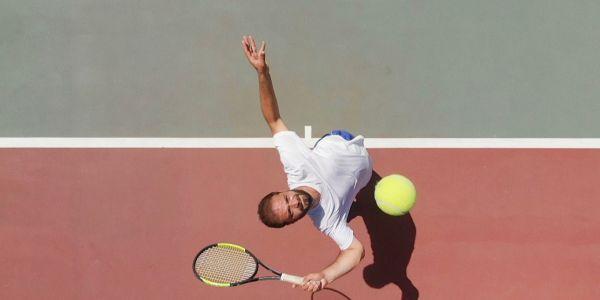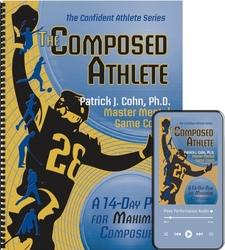
Handling Nerves as an Athlete
What is the difference between nervousness and anxiety?
Anxiety knocks many athletes off their game. For these athletes, anxiety starts with unchecked nervousness and slowly builds, leading up to a competition and into the warm-up.
By the time the game begins, they feel overwhelmed and out of control. An athlete can prevent anxiety by regulating their nervousness before it builds to performance-declining proportions, by embracing feelings of nerves.
Athletes experience anxiety on three levels.
Physically – Physical symptoms alter an athlete’s physiology and affect optimal mechanics.
Physical symptoms include:
- Shallow Breathing
- Tightness in Chest
- Upset stomach
- Nausea
- Shakiness
- Heart Pounding
- Low Energy
- Muscle Tightness
- Sweatiness
Mentally — Mental symptoms not only affect an athlete’s focus but also impact an athlete’s physiology.
Mental symptoms include:
- Fear of Losing or Making Mistakes
- Feeling Overwhelmed
- Trouble Focusing
- Worst-Case Scenario Thinking/ Negative Thinking
- Inability to Remember Game Strategy
- Reduced Confidence
Emotionally – Anxiety affects an athlete’s ability to stay composed and poise under pressure.
Emotional symptoms include:
- Agitation
- Frustration
- Anger
- Annoyance
- Hyperactivity
- Irritability
- Moodiness
Many athletes mistakenly believe being nervous and being anxious are the same. However, there are four significant differences between nervousness and anxiety.
- Nervousness is experienced as jitteriness or excitement, while anxiety is associated with fear and excessive worry.
- Nervousness is a mild feeling and helps sharpen an athlete’s focus. Anxiety is often intense and overwhelming and interferes with an athlete’s ability to focus.
- Nervousness slightly subsides as the competition starts while anxiety usually lasts throughout a competition.
- Nervousness can enhance performance. Anxiety hinders an athlete’s ability to perform at their peak. Many elite athletes use nervousness to their advantage.
Sha’Carri Richardson, who is preparing for the 2024 Olympics, won the Women’s 100m at the 2024 Prefontaine Classic in a time of 10.83.
Richardson’s time was a tenth of a second better than second place (St. Lucia’s Julien Alfred) and nearly a half a second better than rival Elaine Thompson-Herah, the five-time Olympic champ and reigning 100m gold medalist.
Richardson admitted she was nervous but viewed her nerves as a positive, she embraced the feelings of nerves.
RICHARDSON: “As my coach says, use that nervousness as motivation.”
Richardson was able to use her nervousness to her advantage because she paid attention to her mental game and competitive mindset.
RICHARDSON: “I feel like my performance reflects my training as well as my mindset. This year’s been humbling and I just understand no matter what’s going on to always stay focused on the mission at hand.”
To use nervousness to your advantage, you need to accept that nervousness is beneficial and essential for peak performance, and embrace the feeling of nerves.
In addition, you need to learn to regulate the level of nerves you experience. Emotional regulation is a critical mental skill for peak performance.
Examine how nervousness and anxiety have impacted past performances.
Look back at previous peak performances and notice your level of nerves and how it assisted your game. Likewise, recall past performances when anxiety caused you to fall apart.
Examining past performances can help you understand the difference between nervousness and anxiety and how a slight degree of nerves can enhance performance.
Related Sports Psychology Articles
- Pregame Nerves Facts and Fiction
- How To Ease Your Child’s Nerves During Tournaments
- Pregame Nerves, Where Do They Come From?

The Composed Athlete (Digital Download)
“The Composed Athlete” audio and workbook program helps you gain a competitive edge by improving your composure in competition. Learn the best ways to let go of mistakes and overcome frustration and dwelling.
“I am a PGA Professional and wanted some ideas to help my students, but my own game has improved! I think I will shoot 69, negative thoughts have vanished, and my self-talk and confidence has improved tremendously. I will be referring my students to your website.”
~Bill Allen, PGA Pro

